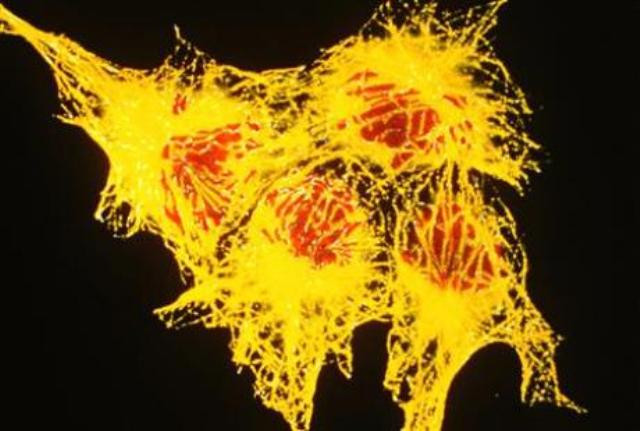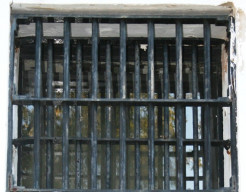
Hareem was barely 14 when her parents heard the news no parent should have to endure. Their only child was suffering from Acute Myeloid Leukemia (AML), a cancer of the blood and bone marrow. Hareem was not told about the exact condition and was instead told that she wasn’t well. The doctor prescribed a two-year course of chemotherapy. Six months of aggressive chemotherapy later, just as her parents were about to heave a sigh a relief, Hareem relapsed. This time the cancer had attacked her brain.
“My parents never planned to tell me any of this,” Hareem says, adding that a little detective work on her part led her to the truth.
“Just before Hareem was diagnosed she had witnessed two deaths in the family: her grandmother and her uncle. She was close to both of them so we did not want to add any stress on her,” her mother, Mrs A explains.
“When we saw we were almost out of the woods with the AML, her father decided it was best to leave the past behind and never tell Hareem — but then the tumour came,” she added. Five days in intensive care later, the doctors told the parents there was little left for them to do. Hareem might survive the night, the week or perhaps a fortnight, they couldn’t say.
There was a great deal of frustration inside her when Hareem first learnt the truth. The gruesome side-effects of the chemotherapy and bone marrow transplant compounded the anger. “I used to have thick, long hair and then I became bald but the toughest was the transplant,” she recalls. Severe skin rashes, hot flashes, fungal infections and vomiting blood were all part and parcel of her fight to survive.
But Hareem decided that come what may, she would dare to hope. “If I was meant to die then so be it, but I was not going to live my last days in misery and depression,” she says. “I could keep asking ‘why me’ or I could enjoy the time I have left.” And that is when things began to turn around.
There have been several studies on whether there is a correlation between attitude and curing cancer. One of them was conducted by University of Pennsylvania School of Medicine. In an interview to the American Psychological Institution after the study was published, psychologist James C Coyne said, “I wish it were true that cancer survival was influenced by the patient’s emotional state. But given that it is not, I think we should stop blaming the patient.”
This does not mean, however, that some doctors believe otherwise. One of them is Dr Zehra Fadoo who is an associate professor and haematologist oncologist at the department of Paediatrics at the Aga Khan University. “You cannot quantify the difference a positive attitude makes with cancer patients,” she says. “But the impact is definitely huge. It is tough to be focused and hopeful in extremely adverse circumstances but I am amazed by the courage and will power some of these children exhibit.”
Chief executive of the Children Cancer Foundation Pakistan Trust Dr Shamvil Ashraf echoes the sentiment. “The courage and resilience some of the children show is truly remarkable. All with a smile on their face.”
Hareem believes she is a prime example of this. “I would keep myself distracted and happy. My family from all over would come and see me. Everyone was given strict instructions (by my parents) not to talk about anything remotely sad or upsetting. In fact I even celebrated my birthday with full festivities in the children ward.”
There are others who are not as lucky. Fortunately, however, the incidence of cancer in children as compared to adult is quite low.
Out of cancers in all age groups, only three to five per cent occurs in children less than 15 years of age. That is approximately 100 to 120 children. In Karachi, about 500 children get cancer every year.
According to the Children Cancer Hospital, Leukemia (blood cancer) is the most common, affecting about 35 per cent, a third of all cancers in children. The second most common is Lymphoma (cancer of the lymph glands) which affects about 20 per cent. Other common cancers are Retinoblastoma (eye cancer), Wilm’s Tumor (cancer of the kidney), neutoblastoma, brain tumour, cancer of the bone, muscles, soft tissue and liver.
The survival rate for cancer in general is expected between 50 to 60 per cent. The Children Cancer Hospital has managed to achieve a rate of 55 per cent. Meanwhile, Dr Fadoo says, “In general, if detected early and if proper treatment is provided, the survival rate is good, some as high as 80 per cent.” For example, in lymphoma or Hodgkins disease, the average survival rate is between 80 to 90 per cent and 70 per cent of patients have a chance at being completely cured.
“The message is simple, cancer is curable. It is a shame to have children dying of cancer when they have a good chance of survival. They should at least been given a chance to fight for themselves,” Dr Ashraf says.
Cost of treatment is one of the major causes of concern for many poor families. Depending on the cancer and complications, parents can expect a bill between Rs100,000 to Rs1.5 million. Treatments last between three months to three years. As for Hareem, she has been cancer free for nearly six years now. Presently she is studying to become a doctor so she too can one day help others in need just as she once was.
Possible signs &
symptoms of cancer
in children
There is no specific sign and symptom of cancer in children.
It depends on the type and site of cancer.
Generally the child may present the following:
1. Repeated long fevers without any obvious cause
2. Continuous headache with nausea & vomiting
3. Bleeding and bruises without any trauma
4. Persistent and progressive enlargement of any lymph gland or tumor not responding to usual treatment
5. Weight loss and pallor.
6. White re-election of the eyeball (like cats’ eye shining in the dark).
Source: Children Cancer Hospital
Published in The Express Tribune, June 1st, 2011.

















COMMENTS
Comments are moderated and generally will be posted if they are on-topic and not abusive.
For more information, please see our Comments FAQ